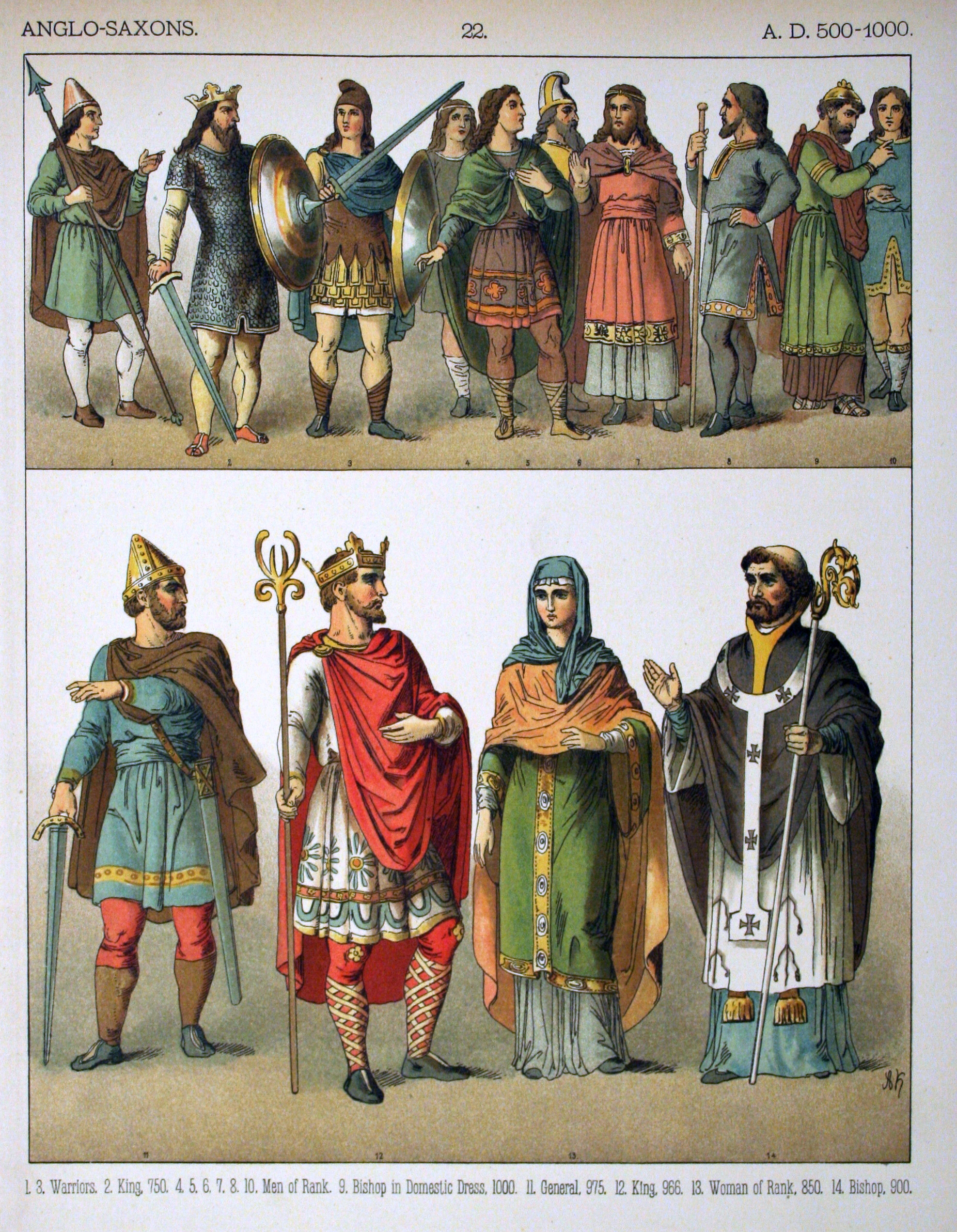Welcome to Mīne Wyrtruman!

The Anglo-Saxons, dressed in typical clothing of the period
This website is dedicated to Fyrnsidu, a modern religion based upon the religion of the pre-Christian Germanic tribes that settled in Britain in the fifth century of the common era. These people, commonly known as the Anglo-Saxons, brought with them a religion that is both similar to, yet distinct from, the religion of the pre-Christian Nordic peoples. Fyrnsidu is a religion based upon the worship of the Anglo-Saxon gods, one’s ancestors, and the wights (spirits) of the land around us and in our homes. If you’re curious about Fyrnsidu, check out my slideshow Introduction to Fyrnsidu. The best resource to learn more about Fyrnsidu is Fyrnsidu.faith.
About the Website
Mīne Wyrtruman means My Roots in Old English. As a Fyrnsidere (Anglo-Saxon Heathen), the culture and religion of the ancient pre-Christian Anglo-Saxon peoples are the roots of my faith. I use the little that we know about them as a foundation upon which I build my religion.
Mine Wyrtruman is inclusive, believing that all who feel called are welcome to heathenry, regardless of race or ethnicity. I condemn all types of racism, including ‘folkish’ heathenry.
As the ancient Anglo-Saxon heathens were polytheistic, so is Mine Wyrtruman. I reject the monotheism of Judeo-Christian religions and the duotheism of traditional Wicca. I do not, however, have a problem with Christians or Wiccans.
I plan to cover a wide range of heathen related subjects on this blog, from heathen basics (frith, inner and outer yard, wyrd, orlæg, etc.), runes, racism within heathenry, among many other things.
About the Author
I am an Anglo-Saxon Heathen man in my thirties living in the Midwestern United States. My interests include studying comparative religion, history, and computer programming. I love science fiction, and playing video games. I’m currently studying the Futhorc (Anglo-Saxon) runes, both from an academic perspective as well as a more magical perspective.
I am not an expert, nor an academic. I am a blue collar worker with a passion for research and access to the internet. All my information about Fyrnsidu has been gathered from my own research and from other Heathens. Please do not take anything on this website as “the true and only way” to practice Fyrnsidu. This religion is very non-dogmatic and personal for that. If you like any ideas that I present on this website, feel free to adopt them. If you don’t agree with something, feel free to not adopt it.
You can follow me on Mastodon at @ByronPendason!
Recent Blog Posts
Don't Throw Out the Baby
Posted by Byron Pendason on May 3, 2024 CE, in Heathenry, Heathen worldview, ReconstructionWes hāl!1 I think most of us have gotten good at judging how true something is based on our first impressions. If it sounds like something that could be true, we assume it’s true and move on with our day. If it’s something that sounds absurd, we likewise reject the proposition and move on. We’ve pretty much had to. With the internet being so pervasive in our modern lives, we come across more information than we could possibly ever have time to verify. And this system works decently well when it’s subjects that we are well acquainted with. We can...
On the Afterlife
Posted by Byron Pendason on February 17, 2024 CE, in Heathenry, Afterlife, Heathen worldview, ReconstructionWes hāl!1 Heathenry, like much of paganism, is a religion which focuses on this life. Heathens worry more about cultivating relationships with their divine beings to gain their aid in making this life better, rather than trying to please a god to gain entrance into the hereafter. But to say Heathenry has no afterlife would also be inaccurate.2 Wes hāl and Beo gesund are Old English greetings and farewells that literally mean Be well/whole/healthy. The first seemed to be more common among the Anglian dialects and the second more common among the Saxon dialects. I prefer to use both though,...
What is Up to Us?
Posted by Byron Pendason on February 4, 2024 CE, in Heathenry, Stoicism, Philosophical musingsWes hāl!1 In Stoicism, the dichotomy of control is a fundamental concept. At least that’s what I had been led to believe. A recent discussion on r/Stoicism challenged this concept though, and I found the discussion enlightening. Wes hāl and Beo gesund are Old English greetings and farewells that literally mean Be well/whole/healthy. The first seemed to be more common among the Anglian dialects and the second more common among the Saxon dialects. I prefer to use both though, the first as a greeting and the second as a farewell. ↩